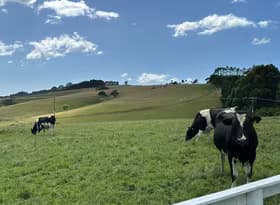Despite being a relatively small country internationally, New Zealand is geographically diverse enough that there is never a single economic "story". One example of this can be seen if we divide the country up into "Metro", "Provincial" and "Rural" areas and examine rental affordability as shown in the chart below.
As you would expect, average rents and average household income are both higher in Metro areas than in Provincial areas, where in turn both are higher than in Rural areas. I would have expected rental affordability - the ratio of these two numbers - to be similarly structured, with Metro areas least affordable and Rural areas most affordable. This is born out by most of the period from 2000, but against my expectations the pattern has changed over the last few years. Average rents have been rising much faster than average incomes in Provincial and Rural areas, so that Rural rental affordability is now on a par with Metro areas, and the ratio shows that renting has been least affordable in Provincial areas for the past four years.
Recently we have introduced these three Regional Grouping custom areas to the Regional Economic Profiles and Quarterly Economic Monitor. Metro areas, Provincial areas and Rural areas are groupings of 12, 32 and 22 territorial authorities (click the links to see the definitions), and comprise 63%, 32% and 5% of the population, respectively. The profiles of these areas are available to all users, not just subscribers, and they can also be selected as comparison areas.
Individually, they can be a useful comparator when you want to compare the statistics of an area more broadly than with another territorial authority, but more focused than with the entire country. Together, they can be used to explore the economic stories across the country through a different lens. Beyond rental affordability, the three groups differ in the age and ethnicity of their populations, they score quite differently in our Wellbeing Framework, and the effects on employment are notably different from tourism, dairy and knowledge intensive jobs. There's more to explore, and we encourage you to contact us if you would like to talk to our economists about anything you find.


















